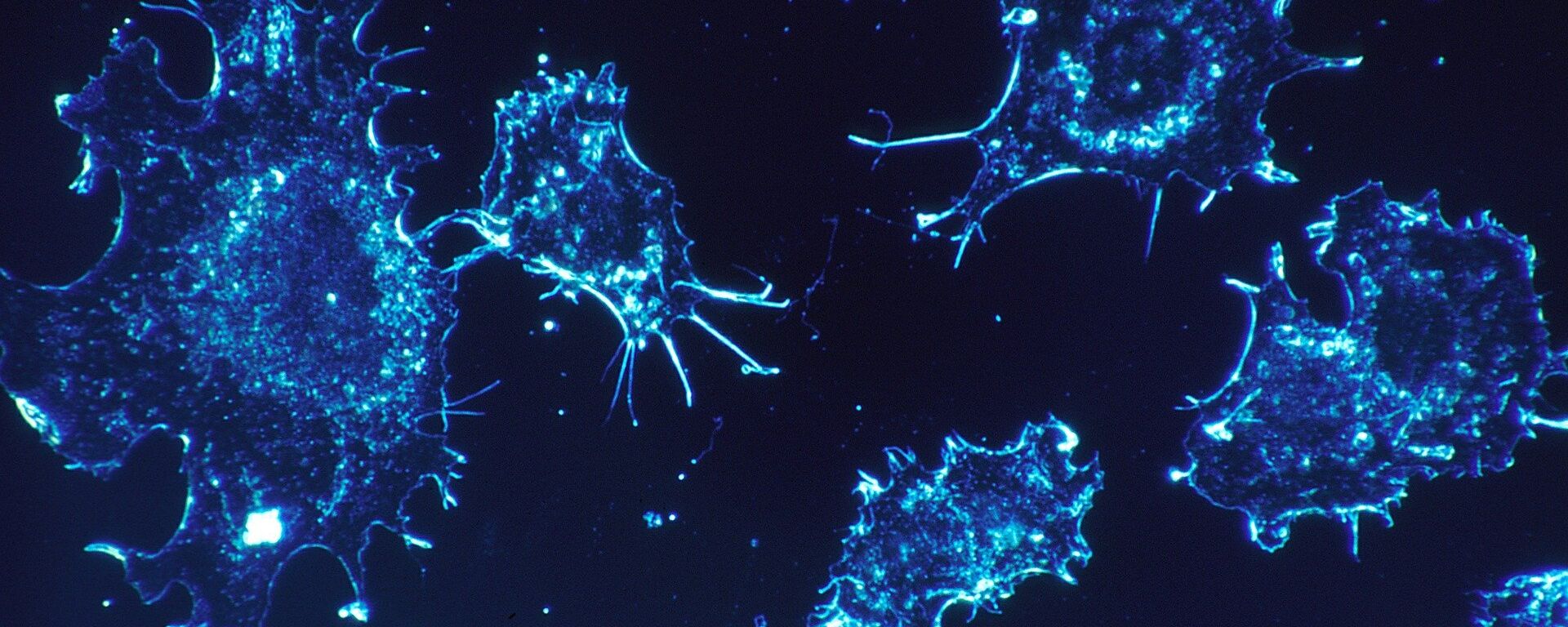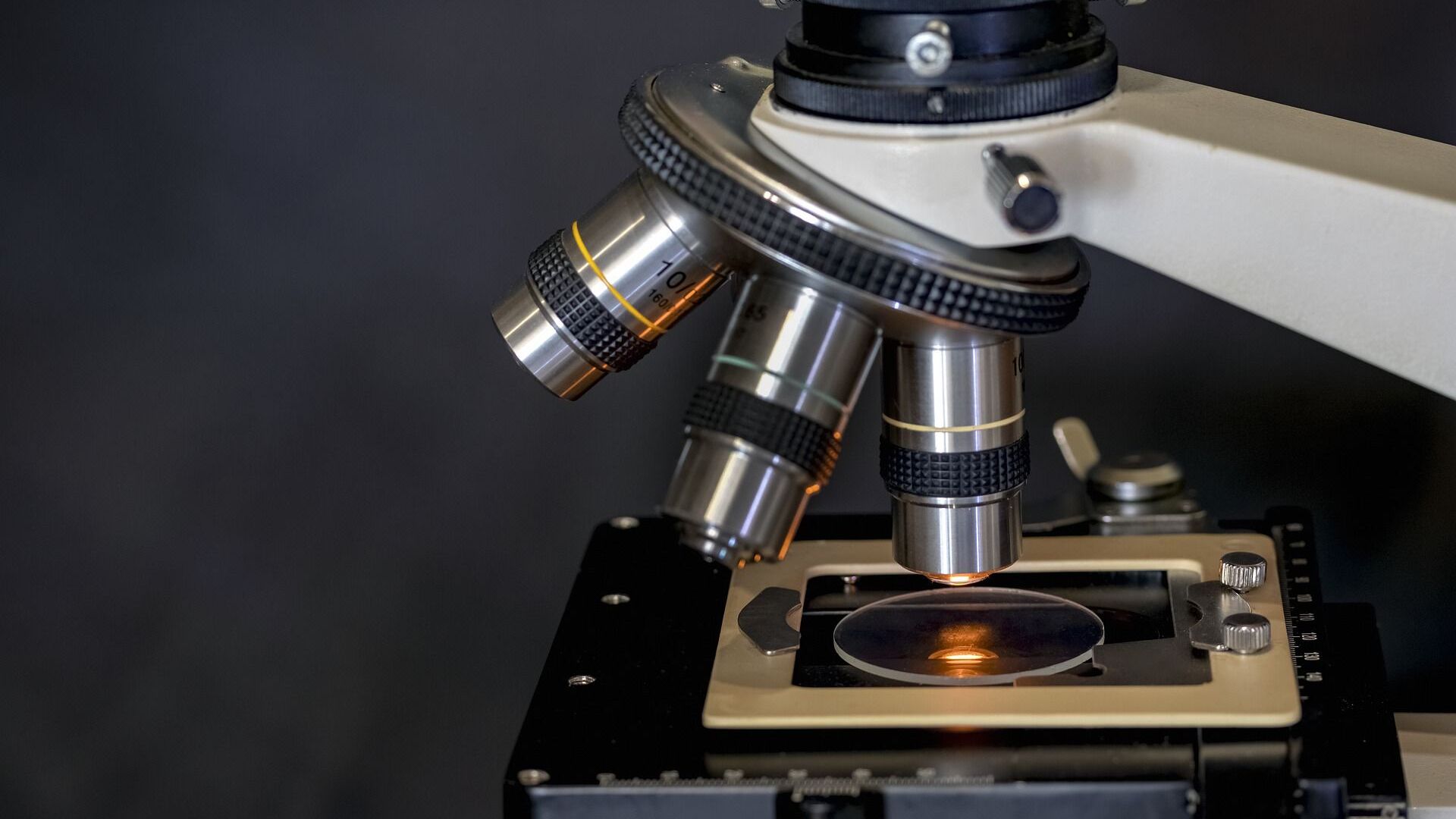https://sputnikglobe.com/20221225/alloys-nuclear-waste-processing--artificial-lab-animals-what-russian-scientists-achieved-in-2022-1105787805.html
Alloys, Nuclear Waste Processing & Artificial Lab Animals: What Russian Scientists Achieved in 2022
Alloys, Nuclear Waste Processing & Artificial Lab Animals: What Russian Scientists Achieved in 2022
Sputnik International
Scientists in Russia managed to achieve a number of remarkable breakthroughs in various fields during the year. Here are but a few of the advancements that... 25.12.2022, Sputnik International
2022-12-25T18:18+0000
2022-12-25T18:18+0000
2022-12-25T18:18+0000
events that shaped year 2022
russia
scientists
research
achievements
https://cdn1.img.sputnikglobe.com/img/07e5/04/1d/1082760839_0:100:1921:1180_1920x0_80_0_0_41b5bcb716febd5350449b0c6f0736d5.jpg
A team of scientists from Tomsk Polytechnic University came up with a possible way to end the use of lab animals in preclinical research by replacing them with three-dimensional models called dosimetric phantoms.Scientists at Russia’s National University of Science and Technology “MISiS” came up with a new composite material resistant to high temperatures and oxidation, which could be quite useful in aerospace industry.Belgorod State University scientists developed a new alloy that can retain its considerable strength and plasticity at extremely low temperatures, thus making it potentially useful in space exploration and for operations in the Arctic or in Antarctica.Researchers in Moscow whipped up a way to 3D print orthopedic reamers for joint replacement surgery on animals.At Saratov State University, scientists developed a hydrogel with a lasting antiseptic effect that could be used for soft tissue reconstruction, and which is cheap as it is based on whey protein.Scientists from the Russian Far Eastern Federal University in cooperation with the Institute of General and Inorganic Chemistry of the National Academy of Sciences of Belarus proposed a method for processing solid nuclear waste into ceramics that could then be potentially used in other industries.And researchers from Don State Technical University discovered a way to significantly boost the physical properties of concrete by utilizing burnt rice straw.
https://sputnikglobe.com/20220819/russian-scientists-contributing-to-development-of-nanoparticle-cancer-treatment-ministry-says-1099752423.html
russia
Sputnik International
feedback@sputniknews.com
+74956456601
MIA „Rossiya Segodnya“
2022
Sputnik International
feedback@sputniknews.com
+74956456601
MIA „Rossiya Segodnya“
News
en_EN
Sputnik International
feedback@sputniknews.com
+74956456601
MIA „Rossiya Segodnya“
Sputnik International
feedback@sputniknews.com
+74956456601
MIA „Rossiya Segodnya“
russia, scientists, research, achievements
russia, scientists, research, achievements
Alloys, Nuclear Waste Processing & Artificial Lab Animals: What Russian Scientists Achieved in 2022
Scientists in Russia managed to achieve a number of remarkable breakthroughs in various fields during the year. Here are but a few of the advancements that were announced by researchers over the past months.
A team of scientists from Tomsk Polytechnic University came up with a possible way to end the use of lab animals in preclinical research by replacing them with
three-dimensional models called dosimetric phantoms.
Scientists at Russia’s National University of Science and Technology “MISiS” came up with a
new composite material resistant to high temperatures and oxidation, which could be quite useful in aerospace industry.
Belgorod State University scientists
developed a new alloy that can retain its considerable strength and plasticity at extremely low temperatures, thus making it potentially useful in space exploration and for operations in the Arctic or in Antarctica.
Researchers in Moscow whipped up a way to
3D print orthopedic reamers for joint replacement surgery on animals.

19 August 2022, 07:35 GMT
At Saratov State University, scientists
developed a hydrogel with a lasting antiseptic effect that could be used for soft tissue reconstruction, and which is cheap as it is based on whey protein.
Scientists from the Russian Far Eastern Federal University in cooperation with the Institute of General and Inorganic Chemistry of the National Academy of Sciences of Belarus proposed a method for processing
solid nuclear waste into ceramics that could then be potentially used in other industries.
And researchers from Don State Technical University discovered a way to significantly boost the
physical properties of concrete by utilizing burnt rice straw.



